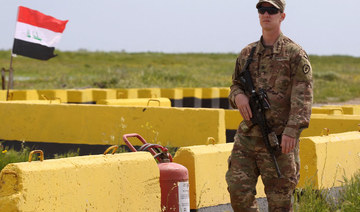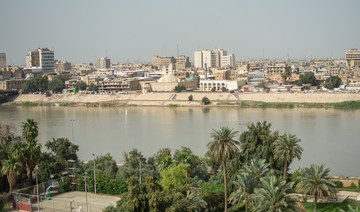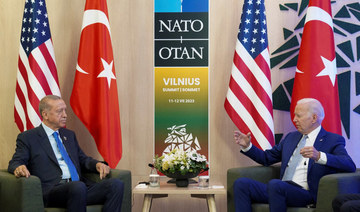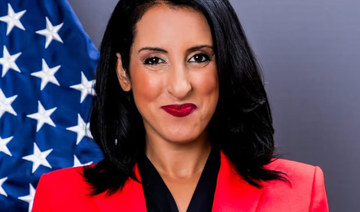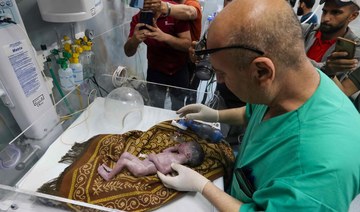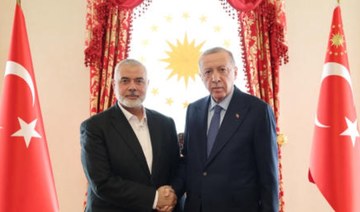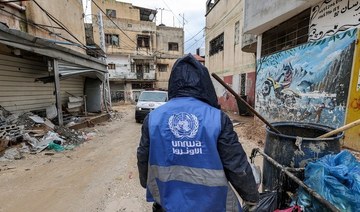BAGHDAD: Faced with sharp price rises, a decline in the buying power of the dinar and rising unemployment, Iraqis enter the Muslim fasting month of Ramadan with a feeling of dread.
“After a whole day of fasting, we have to eat something,” even if the price of a kilo of tomatoes has more than doubled, said Umm Hussein, a single mother of five who has no salary.
She struggles each month to raise the $45 rent for their modest home.
Like 16 million of Iraq’s 40-million population living under the poverty line, Umm Hussein relies on her ration card for food.
Under the legacy from the 1990s when Iraq’s Saddam Hussein was under a stringent international embargo, every Iraqi whose household heads earns less than $1,000 a month is entitled to certain basic provisions at subsidised prices.
But this year, “we’ve only received the rations for February,” said Abu Seif, 36, who like his father before him has the job of distributing bags of subsidised goods.
“We still haven’t got the rations for Ramadan,” during which Muslims fast from sunrise to sunset, a period that starts this week.
Prime Minister Mustafa Al-Kadhemi had promised extra rations for the holy month. But “people are coming in or calling every day to ask when they’re arriving,” said Abu Seif.
In Abu Ammar’s grocery store, the credit line has been stretched so far that he fears not being able to pay his suppliers any more.
With prices rising sharply, “some families owe more than 200,000 dinars” ($130), the grocer told AFP.
The authorities in energy-rich Iraq, with revenues slashed by the decline in world oil prices, last year devalued the dinar, which has lost 25 percent of its value against the dollar.
As a result, for example, the price for a bottle of cooking oil has gone up to 2,500 dinars, from 1,500 dinars.
On top of price hikes, Covid-19 restrictions such as lockdowns and curfews have killed jobs, especially the day jobs on which many Iraqis rely following decades of conflict.
The UN Food and Agriculture Organization says Iraqis are trapped in a vicious circle.
“Over 90 percent of small and medium enterprises in the food and agriculture sector reported being severely to moderately affected by the pandemic. To cope with decreased revenue, more than 50 percent either let staff go or reduced salaries,” it says.
A joke doing the rounds on Iraqi social media goes something like: “This year, salaries are in the group of death with Covid-19 and Eid Al-Fitr (the feast marking the end of Ramadan). Not sure they will make it though to the next round.”
Haider, a 32-year-old civil servant, says it’s no laughing matter.
“Ramadan fills me with dread. We need a lot of things for the house and new clothes for the children,” he said.
Even in normal times, he struggles to pay the rent, for daily expenses and electricity charges with his monthly salary of $600.
Electricity is one of the heaviest financial burdens, in a country with at times 20-hours-a-day power cuts that force Iraqis to turn to private generators that run on pricey fuel.
Abu Ahmad, a 32-year-old colleague, says he will skip the traditions this Ramadan.
“I’m not going to be giving big dinners at my place, so as not to spread Covid,” he said. “But also, because I can’t afford it.”
Ramadan breeds dread in crisis-hit Iraq
https://arab.news/z8fqx
Ramadan breeds dread in crisis-hit Iraq

- Prime Minister Mustafa Al-Kadhemi had promised extra rations for the holy month
- “Ramadan fills me with dread. We need a lot of things for the house and new clothes for the children,” says a 32-year-old civil servant
Syrian woman is jailed for life over Istanbul killer blast; over 20 others also get prison sentences
Syrian woman is jailed for life over Istanbul killer blast; over 20 others also get prison sentences
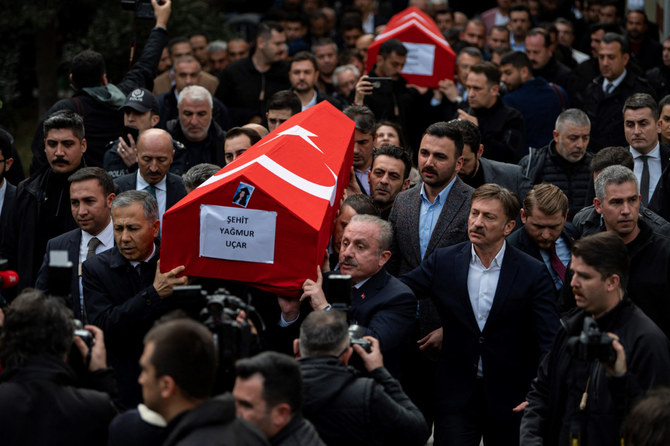
- Ahlam Albashir was given a total of seven life sentences by a Turkish court for carrying out the attack in Istiklal Avenue on Nov. 13, 2022
- Twenty others were given prison sentences ranging from four years to life
JEDDAH: A Syrian woman who planted a bomb that killed six people in Istanbul’s main shopping street 18 months ago was jailed for life on Friday.
Ahlam Albashir was given a total of seven life sentences by a Turkish court for carrying out the attack in Istiklal Avenue on Nov. 13, 2022. Six Turkish citizens, two members each from three families, died in the blast in the busy street packed with shoppers and tourists. About 100 people were injured.
More than 30 other people were accused in connection with the explosion. Four were released from prison on Friday, and a further 10 were ordered to be tried separately in their absence because they could not be found.
Twenty others were given prison sentences ranging from four years to life. Of those, six received aggravated life imprisonment for murder and “disrupting the unity and integrity of the state.”
Turkiye blamed Kurdish militants for the explosion, and said the order for the attack was given in Kobani in northern Syria, where Turkish forces have conducted operations against the Syrian Kurdish YPG militia in recent years.
The YPG and the outlawed PKK Kurdish separatist group, which has fought a decades-old insurgency against the Turkish state, denied involvement in the attack. No group admitted it.
Istanbul has been attacked in the past by Kurdish, Islamist and leftist militants. A wave of bombings and other attacks began nationwide when a ceasefire between Ankara and the PKK broke down in mid-2015.
More than 40,000 people have been killed in the PKK’s conflict with Turkiye since the militant group took up arms in 1984. It is considered a terrorist organisation by Turkiye, the EU and the US.
1 case dismissed, 4 on hold in UN investigation into Oct. 7 allegations against UNRWA staff
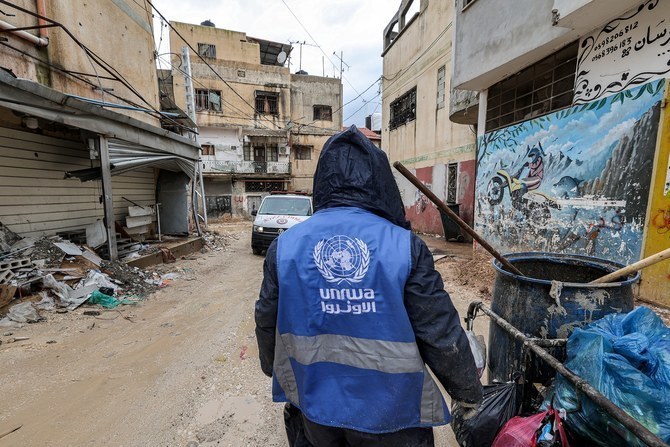
- Investigators have been looking into cases of 12 agency workers accused by Israel in January of participating in attacks by Hamas, and 7 others named later
- 14 cases remain under investigation but the others were dismissed or suspended due to lack of evidence; UN’s internal investigators due to visit Israel again in May
NEW YORK CITY: UN spokesperson Stephane Dujarric said on Friday that the organization’s internal oversight body has been investigating 19 employees of the UN Relief and Works Agency for Palestine Refugees over allegations that they were affiliated with Hamas and other militant groups.
Israeli authorities alleged in January that 12 UNRWA workers participated in the Oct. 7 attacks by Hamas against Israel.
The agency immediately cut ties with the named individuals, and UN Secretary-General Antonio Guterres, in consultation with UNRWA Commissioner General Philippe Lazzarini, ordered an independent review to evaluate the measures taken by the agency to ensure adherence to the principle of neutrality and how it responds to allegations of breaches of neutrality, particularly in the challenging context of the situation in Gaza.
In a wide-ranging report published this week, the investigators, led by Catherine Colonna, a former foreign minister of France, said Israeli authorities have yet to provide any evidence to support the allegations against UNRWA workers. They also noted that Israel had not previously raised concerns about any individuals named on the agency staffing lists it has been receiving since 2011.
They stated in the report: “In the absence of a political solution between Israel and the Palestinians, UNRWA remains pivotal in providing life-saving humanitarian aid and essential social services, particularly in health and education, to Palestinian refugees in Gaza, Jordan, Lebanon, Syria and the West Bank.
“As such, UNRWA is irreplaceable and indispensable to Palestinians’ human and economic development. In addition, many view UNRWA as a humanitarian lifeline.”
Guterres also ordered a separate investigation by the UN’s own Office of Internal Oversight Services to determine the accuracy of the Israeli allegations. The mandate of the OIOS, an independent office within the UN Secretariat, is to assist the secretary-general in the handling of UN resources and staff through the provision of internal audit, investigation, inspection and evaluation services.
Dujarric said the 19 members of UNRWA staff under investigation included the 12 named by the Israeli allegations in January, whose contracts were immediately terminated, and seven others the UN subsequently received information about, five in March and two in April.
Of the 12 employees identified by Israeli authorities in January, eight remain under OIOS investigation, Dujarric said. One case was dismissed for lack of evidence and corrective administrative action is being explored, he added, and three cases were suspended because “the information provided by Israel is not sufficient for OIOS to proceed with an investigation. UNRWA is considering what administrative action to take while they are under investigation.”
Regarding the seven additional cases brought to the attention of the UN, one has been suspended “pending receipt of additional supporting evidence,” Dujarric said.
“The remaining six of those cases are currently under investigation by OIOS. OIOS has informed us that its investigators had traveled to Israel for discussions with the Israeli authorities and will undertake another visit during May.
“These discussions are continuing and have so far been productive and have enabled progress on the investigations.”
The initial allegations against some members of its staff threw the agency, which provides aid and other services to Palestinian refugees in Gaza and across the region, into crisis. The US, the biggest single funder of UNRWA, and several other major donors put their contributions to the organization on hold.
In all, 16 UN member states suspended or paused donations, while others imposed conditions on further contributions, putting the future of the agency in doubt. Many of the countries, including Germany, later said their funding would resume. However, US donations remain on hold.
37 million tonnes of debris in Gaza could take years to clear: UN
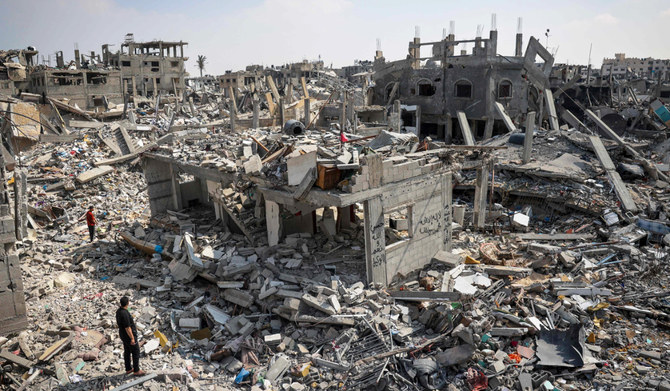
- “We do know that we estimated 37 million tonnes of debris, which is approximately 300 kg per square meter,” Lodhammar added
GENEVA: There are some 37 million tonnes of debris to clear away in Gaza once the Israeli offensive is over, a senior official with the UN Mine Action Service said on Friday.
And unexploded ordnance buried in the rubble would complicate that work, said UNMAS’ Pehr Lodhammar, who has run mine programs in countries such as Iraq.
It was impossible to say how much of the ammunition fired in Gaza remained live, said Lodhammar.
“We know that typically there is a failure rate of at least 10 percent of land service ammunition,” he told journalists in Geneva.

“We do know that we estimated 37 million tonnes of debris, which is approximately 300 kg per square meter,” he added.
He said that starting from a hypothetical number of 100 trucks would take 14 years to clear away.
Lodhammar was speaking as UNMAS launched its 2023 annual report on Friday.
The war in Gaza between Israel and Hamas erupted when Hamas launched an unprecedented attack on Israel on Oct. 7.
Also on Friday, the head of an aid group warned that an Israeli assault on southern Gaza’s Rafah area would spell disaster for civilians, not only in Gaza but across the Middle East,
Jan Egeland said the region faced a “countdown to an even bigger conflict.”
Egeland, the secretary-general of the Norwegian Refugee Council, also said that 1.3 million civilians seeking refuge in Rafah — including his aid group’s staff — were living in “indescribable fear” of an Israeli offensive.
Egeland urged Israeli Prime Minister Benjamin Netanyahu not to proceed with the operation.
“Netanyahu, stop this. It is a disaster not only for the Palestinians, it would be a disaster for Israel. You will have a stain on the Israeli conscience and history forever,” he said.
The NRC head spoke to Reuters in Lebanon, where he visited southern villages that he said were caught in a “horrific crossfire” between the Israeli military and Hezbollah.
“I am just scared that we haven’t learned from 2006,” said Egeland, referring to the month-long war between Hezbollah and Israel that was the two foes’ last bloody confrontation, during which he headed the UN’s relief operations.
“We do not need another war in the Middle East. At the moment, I’m feeling like (this is a) countdown to an even bigger conflict,” he said.
Turkiye’s Erdogan postpones tentative White House visit, sources say
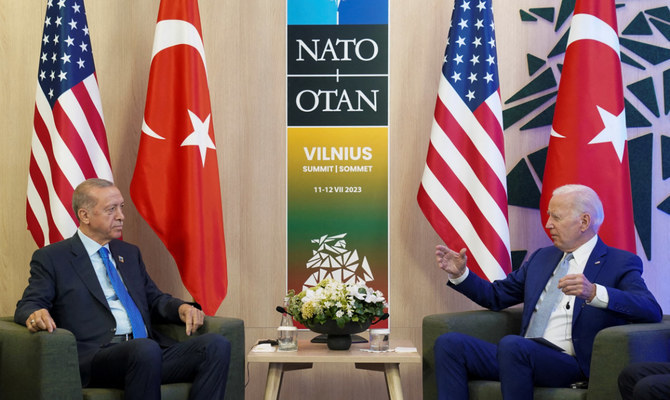
- A new date will soon be set due to a change in Erdogan’s schedule, the Turkish official said
- The source familiar with the matter, speaking on condition of anonymity, said it was unclear what prompted the postponement
WASHINGTON/ANKARA: Turkish President Tayyip Erdogan has postponed a White House meeting with President Joe Biden, a source familiar with the situation and a Turkish official said on Friday of a visit that had been tentatively planned for May 9.
A White House spokesperson, while not confirming the May 9 date, said: “We look forward to hosting President Erdogan at the White House at a mutually convenient time, but we have not been able to align our schedules and do not have any visit to announce at this time.”
A new date will soon be set due to a change in Erdogan’s schedule, the Turkish official said, requesting anonymity. The source familiar with the matter, speaking on condition of anonymity, said it was unclear what prompted the postponement.
The White House never formally announced the visit but a US official told Reuters in late March that following Turkish Foreign Minister Hakan Fidan’s visit to Washington, the White House offered and Ankara had accepted May 9 for a meeting between Biden and Erdogan.
That would have been the first bilateral visit to Washington since 2019 when Erdogan met with then President Donald Trump, a Republican. He and Biden have met a few times at international summits and spoken by phone since the Democratic US president took office in January 2021.
Ties between the US and Turkiye have been long strained by differences on a range of issues. While they have thawed since Ankara ratified Sweden’s NATO membership bid earlier this year, tensions persist over Syria and Russia and the war in Gaza.
Erdogan visited neighboring Iraq this week. Last weekend, he met with Hamas leader Ismail Haniyeh in Istanbul, the first meeting between Erdogan and a Hamas delegation headed by Haniyeh since Israel began its military offensive in the Gaza Strip following Hamas’ Oct. 7 attack.
Netherlands will consider resuming support to Palestinian UNRWA agency
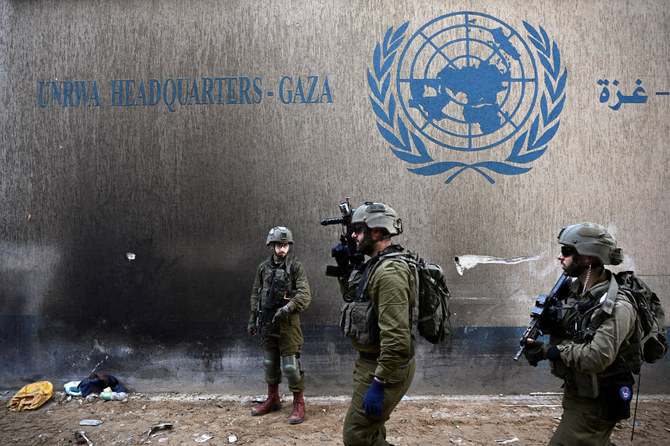
- The decision follows an investigation by the former French foreign minister Catherine Colonna
- The Colonna-led review of the agency’s neutrality concluded Israel had yet to back up its accusations
AMSTERDAM: The Dutch government on Friday said it would consider resuming funding for the UN agency for Palestinians (UNRWA) in Gaza if the agency implements recommendations to strengthen its neutrality.
The decision follows an investigation by the former French foreign minister Catherine Colonna released on Monday into whether some UNRWA employees were involved in the Oct. 7 attack by Hamas.
The Colonna-led review of the agency’s neutrality concluded Israel had yet to back up its accusations that hundreds of UNRWA staff were operatives in Gaza terrorist groups.
The Dutch government said it had already given its yearly donation to UNRWA in January, before the accusations against the agency came to light. It was one of several European countries that paused funding for the agency after the allegations were levied.
It said it did not foresee any additional donations in the near future, but would consider UNRWA as a potential partner if requests for aid were made.



